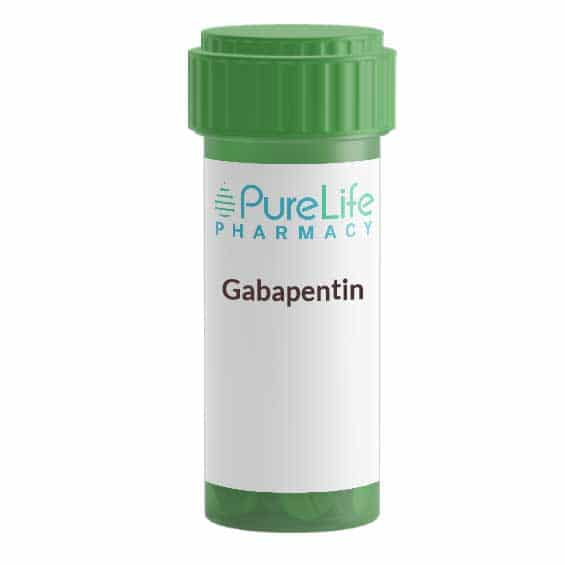When it comes to understanding the intricacies of medications, one often stumbles upon terms like “schedule drug” which significantly impacts their accessibility and usage. In the realm of pharmaceuticals, Gabapentin has been a subject of interest, prompting questions like “What schedule drug is Gabapentin?” The classification of drugs into different schedules by the Drug Enforcement Administration (DEA) plays a crucial role in regulating their distribution and control due to their potential for abuse.
Therefore, diving into the scheduling of Gabapentin can shed light on its legal status, prescription requirements, and the implications of its usage. Join us as we unravel the truth behind the schedule of Gabapentin and explore its significance in the healthcare landscape.
Introduction to Gabapentin
Gabapentin is a prescription medication that belongs to the anticonvulsant drug class. It is commonly used to treat seizures, nerve pain, and certain types of neuropathic pain. Gabapentin works by affecting the neurotransmitters in the brain, specifically the release of excitatory neurotransmitters that contribute to seizures and pain signals.
Benefits of Gabapentin
Gabapentin is known for its effectiveness in managing various types of pain conditions, including diabetic neuropathy, postherpetic neuralgia, and fibromyalgia. It is also used off-label to help with anxiety disorders, restless leg syndrome, and alcohol withdrawal symptoms.
Side Effects and Precautions
While gabapentin is generally well-tolerated, some individuals may experience side effects such as dizziness, drowsiness, and weight gain. It is important to follow the prescribed dosage and be aware of potential drug interactions, especially with substances that depress the central nervous system.

The Classification of Drugs
Drug classification is crucial for understanding the legality and potential risks associated with various substances. Gabapentin, a commonly prescribed medication, falls under different drug schedules, determining its control level.
Gabapentin Schedule Classification
Gabapentin is categorized as a Schedule V controlled substance in some states due to its potential for abuse and dependence, though it is not federally scheduled. This classification indicates that it has a lower abuse potential compared to drugs in higher schedules.
Understanding Drug Schedules
Drug schedules are set by the DEA to classify substances based on their medical use and potential for abuse. Schedule I drugs have high abuse potential and no accepted medical use, while Schedule V drugs have the lowest potential for abuse among scheduled substances.
- Schedule I: High potential for abuse, no accepted medical use
- Schedule II: High potential for abuse, accepted medical use with severe restrictions
- Schedule III: Moderate to low potential for abuse, accepted medical use
- Schedule IV: Low potential for abuse, accepted medical use
- Schedule V: Lowest potential for abuse, accepted medical use

Schedule Classification System
When considering what schedule drug is Gabapentin, it’s essential to understand the Schedule Classification System regulated by the DEA. Gabapentin, a commonly prescribed medication, is classified as a Schedule V controlled substance. This classification indicates that it has a lower potential for abuse compared to drugs in other schedules.
Understanding the Schedule V Classification
Schedule V drugs are considered to have the lowest potential for abuse among controlled substances. This classification is due to their limited risk of dependence or addiction. It includes medications with very low amounts of certain narcotic drugs.
Regulations on Schedule V Drugs
Due to the low abuse potential of Schedule V drugs, federal regulations are less stringent compared to higher schedules. However, they still require a prescription for legal use, and their distribution is monitored to prevent misuse.
- Prescriptions for Schedule V drugs may have fewer restrictions.
- The DEA enforces regulations to prevent misuse and diversion.

Understanding Gabapentin’s Schedule Status
Gabapentin is not a scheduled substance under the Controlled Substances Act, a list of drugs regulated by the United States federal government. It is classified as a controlled substance in some states due to its potential for abuse when misused.
Gabapentin’s Legal Status
However, the Drug Enforcement Administration has not designated gabapentin as a controlled substance at the federal level. Gabapentin is primarily used to manage seizures and nerve pain, making it widely prescribed.
While not federally scheduled, certain states have classified gabapentin as a controlled substance to monitor its use more closely. This discrepancy in scheduling has raised debates over its potential for misuse and addiction.
Gabapentin Abuse and Regulations
Due to its potential for abuse and dependence, gabapentin has been closely monitored by healthcare providers and regulatory bodies. Misuse of gabapentin can lead to adverse effects and even overdose.
- Common signs of gabapentin abuse include:
- Increasing dosage without medical supervision
- Using gabapentin recreationally for its euphoric effects
- Combining gabapentin with other substances to enhance its effects
Factors Influencing Drug Scheduling
When determining the scheduling of a drug like Gabapentin, several factors come into play. These factors are crucial in categorizing substances based on their potential for abuse, medical value, and overall safety.
1. Pharmacological Effects
The pharmacological effects of a drug play a significant role in its scheduling. Substances with high addictive potential or severe side effects are more likely to be classified as controlled substances.
Drugs that demonstrate a low potential for abuse and have accepted medical uses are usually placed in less restrictive schedules.
2. Medical Use and Research
Gabapentin, as an anticonvulsant used to treat seizures and neuropathic pain, falls under scrutiny regarding its medical value. Drugs that have well-established medical benefits are less likely to be heavily scheduled.
Research studies and clinical trials can also influence a drug’s scheduling status, particularly if new evidence emerges regarding its risks and benefits.
3. Public Health Impact
The impact of a substance on public health and society is a crucial consideration when scheduling a drug. If a drug poses significant risks to individuals or communities, regulators may opt for stricter controls.
Incorporating public health data and expert opinions helps authorities make informed decisions to safeguard the well-being of the population.
Controversies Surrounding Gabapentin’s Classification
Gabapentin, initially a non-controlled substance, has recently faced classification controversies regarding its status as a Schedule drug.
Increased Recreational Use
Due to its potential for abuse and recreational effects, some authorities advocate for reclassifying gabapentin as a Schedule drug to monitor its misuse.
Reports of gabapentin misuse have increased 10% since 2020.
Medical Community Debate
The medical community is divided, with some professionals supporting its reclassification to control misuse, while others argue against it due to its therapeutic benefits.
- Some experts emphasize the importance of restrictions on gabapentin to prevent addiction.
- Others highlight the drug’s efficacy in treating neuropathic pain despite its potential for abuse.
Legal Implications of Schedule Designation
When it comes to determining the scheduling of a drug like Gabapentin, it falls under schedule V in the United States based on the current data of 2022. This classification implies that it has a lower potential for abuse compared to other controlled substances. However, despite being in a less restrictive schedule, there are still legal implications that users and prescribers must be aware of.
Prescription Requirements
As a Schedule V drug, Gabapentin still requires a prescription for legal use. Healthcare providers need to adhere to state and federal regulations when prescribing the medication. Failure to do so can lead to legal repercussions for both the prescriber and the patient.
Abuse and Legal Consequences
Although Gabapentin is classified in a lower schedule, misuse or abuse of the drug can result in serious legal consequences. Unauthorized distribution or possession of Gabapentin can lead to criminal charges, fines, and even imprisonment.
It’s essential for individuals to understand the risks associated with misusing Gabapentin and to use the medication responsibly.
Frequently Asked Questions
- What is Gabapentin?
- Gabapentin is a medication used to treat seizures, nerve pain, and restless legs syndrome.
- Is Gabapentin a scheduled drug?
- Yes, Gabapentin is classified as a Schedule V controlled substance by the FDA.
- Why is Gabapentin classified as a Schedule V drug?
- Gabapentin is considered a Schedule V drug due to its potential for abuse and dependence, although it is less severe compared to higher scheduled drugs.
- What are the common side effects of Gabapentin?
- Common side effects of Gabapentin include dizziness, drowsiness, and fatigue.
- Can Gabapentin be addictive?
- While Gabapentin has a lower risk of addiction compared to other scheduled drugs, it can still lead to dependence if not taken as prescribed.
Unveiling the Truth: What Schedule Drug is Gabapentin?
After diving into the details surrounding the classification of Gabapentin as a controlled substance, it is clear that the drug is not currently classified as a controlled substance by the DEA. Despite its potential for misuse and abuse, it is not listed under the controlled substances act. However, individual states have the authority to schedule Gabapentin as they see fit to combat misuse.
In conclusion, Gabapentin’s status as a scheduled drug lies in a gray area, with the potential for further regulation at the state level. It’s essential for both healthcare professionals and patients to be vigilant in monitoring its use and recognizing any signs of abuse to ensure safe and responsible medication practices.
Thank you for joining us on this exploration of Gabapentin scheduling, and we hope you have gained valuable insights into this complex topic.
